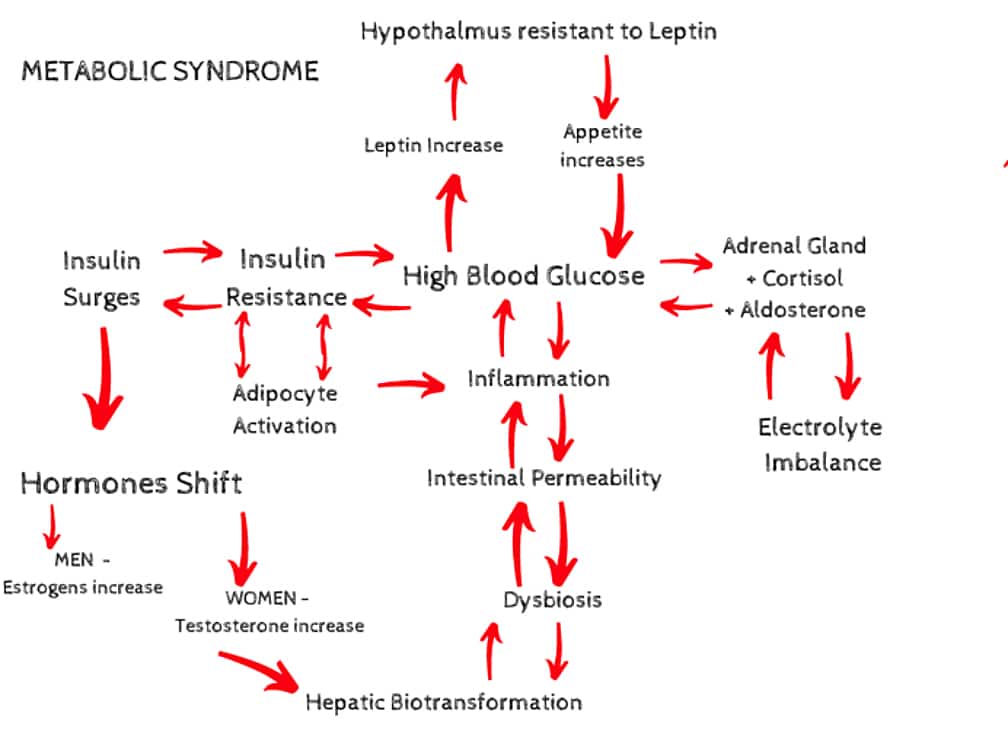
Eoin Roe, Chiropractic
Call 087 958 2362
www.eoinroechiropractic.com
Last month we looked at normal blood glucose balance and how your body manages this. This month we are examining what happens when blood glucose levels get too high. Ultimately this leads to Type 2 diabetes, which is induced by diet and lifestyle choices and is the end stage of an increasing level of dysfunction that can take 15 to 20 years to develop.
Before we go on to discuss the different stages leading to diabetes here is a list of common symptoms related to blood sugar levels that are too high: Fatigue after meals; general fatigue; constant hunger; cravings for sweets – not relieved by eating them; must have something sweet after a meal; waist girth is equal to or larger that hip girth; frequent urination; increased appetite and thirst; difficulty losing weight; migrating aches and pains.
Insulin Resistance
In normal physiology, as blood glucose levels rise, the pancreas releases insulin to push the glucose into cells so that the cells can use the glucose as energy. This works by insulin binding to receptors on the cell surface and then glucose is transported into the cell. If the levels of glucose and therefore insulin are too high or remain high for long, then eventually these receptors become resistant to the effect of insulin, meaning the cells cannot take up the glucose in the blood. This causes a further surge in insulin and contributes to a vicious cycle of more insulin resistance.
At this stage, as the body can no longer store excess glucose in the liver or skeletal muscle, it will convert it into triglycerides, which will be stored as body fat.
Early on in this stage your fasting blood tests for glucose will still appear normal but you will start to notice symptoms, perhaps the most important of which is if you feel tired or your energy levels drop after you eat. The reason you feel tired is that your body is converting excess glucose into triglycerides and this takes a lot of energy.
Don’t wait for blood tests to start indicating that your blood sugar is too high; now is the time to take action. The further you go on down this road to metabolic syndrome the more complex and difficult to resolve your issues will become.
Metabolic Syndrome
Further down this path is metabolic syndrome. You will start to find changes in blood chemistry, though not necessarily in the fasting blood glucose levels. There will also be changes to the lipid panel, namely a decrease in HDL (good cholesterol) and an increase in triglycerides (bad cholesterol). You may also find your blood pressure starts to rise and an increase in waist size, as you put on weight.
As this pattern of dysfunction develops, further changes to your physiology start. High levels of glucose start to modulate your brains ability to respond to leptin, which controls your appetite, with higher levels of leptin and resistance in the hypothalamus your appetite goes up meaning you never feel full.
Higher levels of insulin in the blood, which is trying to get the glucose into your cells, start to shift hormone balance in men and women. For men it causes an increase in oestrogen but for women an increase of testosterone. This can cause problems with fertility for women and men. Emotional problems, anxiety and other issues can follow.
Additionally high blood glucose levels cause inflammation in the body, which can lead to gastrointestinal problems and also promote the adrenal glands to release cortisol and other hormones that effect the kidney which can be responsible for electrolyte imbalances and higher blood pressure.
All of these effects have an amplifying effect on the level of glucose, insulin and other hormones in the blood causing multiple vicious cycles making it harder and harder to reverse.
The good news is that you can do something about this problem by changing your diet and lifestyle. If you are in the very early stages and are just starting to notice that you have tiredness after meals, changes to your diet and adding some daily exercise like walking into your routine, may be enough to reverse your symptoms.
If on the other hand you have been having issues for a while and notice changes to your energy, you are craving sugar and carbohydrates, you have started to put on weight and find it hard to exercise because it causes pain, you will have a complex web of symptoms and health issues and the usual dietary and exercise advice may not work for you.
Not only what you eat will matter, but how much and when will be important, having gaps between meals (fasting) not snacking and cutting out sweetened and carbonated drinks even those without sugar will be important.

Seeking guidance from someone who understands the complex web of issues caused by high blood sugar will be able to help you with a more targeted approach to getting your blood sugar and health back under control.
If you would like help to manage your blood sugar or any chronic health problems please contact me on 087 9582362.


